A Guide to Maritime Labour Convention (MLC), 2006 for Maritime Professionals
Maritime Labour Convention (MLC), according to the ILO or International Labour Organisation, provides a broad perspective to the seafarer’s rights and fortification at work. The maritime regulation will finally enter into force on August 20th, 2013.
Nearly 1.2 million seafarers are affected by the terms and conditions of this human rights act, which lays down a set of regulations for protection at work, living conditions, employment, health, social security and similar related issues.
On the basis of the Maritime Labour Convention (MLC), the Seafarer’s Employment Contracts is implemented and mandated against nullifying the present employment contracts.
MLC is similar to the other statutory certifications such as ISM and ISPS onboard ships and the certificate has 5 years of validity with interim, initial and intermediate surveys.
It is therefore imperative for all seafarers to understand the importance of Maritime Labour Convention (MLC), 2006.
Under MLC, 2006, the ship owners are required to submit a DMLC or Declaration of Maritime Labour Compliance to their respective flag states which form a party to the convention.
The flag states accordingly issue the MLC Certificate to the fleet flying their flag following, surveys, inspections, paperwork and approvals.
The certificate is then required to be posted at a conspicuous position onboard.
Contents of MLC, 2006
1. Minimum Requirements for seafarers to work on ships
- Minimum age
- Medical certificate
- Training and certifications
- Recruitment and placement
2. Conditions of Employment
- Seafarer’s Employment Agreement
- Wages
- Hours of rest and hours of work
- Entitlement to leave
- Repatriation
- Seafarer compensation for ship’s loss or foundering
- Manning levels
- Career and skill development and opportunities for seafarer’s employment
3. Accommodation, Recreation, Food and Catering
- Accommodation and recreational facilities
- Food and catering
4. Health Protection, Medical Care, Welfare and Social Security Protection
- Medical care on board and ashore
- Ship owner’s liability
- Health and safety protection and accident prevention
- Access to shore-based welfare facilities
- Social Security
5. Compliance and Enforcement
- Flag state responsibility
- Authorization of recognized organizations
- Maritime labour certificate and declaration of maritime labour compliance
- Inspection and enforcement
- Onboard compliance procedures
- Port State Responsibilities
- Marine Casualties
- Labour Supplying responsibilities
Application of MLC, 2006 to the type of vessels
MLC applies to all the registered commercial vessels regardless of the flag state they belong to. This will also include leisure and commercial yachts, which are engaged on international voyages besides a few exceptions as stated in their circular discussing application of MLC on types of vessels.
Vessels must be over 500 GRT to carry the MLC certificate. For vessels under 500 GRT, guidelines recommend the vessels to be voluntarily complying with the convention and as documented by the flag states.
MLC 2006 Compliance requirements
The flag state administration either does the certifying process for the MLC certification or a Recognized Organisation (RO) may be entitled to carry out the process on their behalf.
The authorization may include the whole process of submission of the DMLC, inspection and ships operational verification to the issuance of the MLC Certificate or a part of it.
Classification societies or other third parties which specialize as recognized organisations are normally the service providers on behalf of the flag states.
Period of validity of the MLC certificate
The MLC certificate may be issued for a period not exceeding five (5) years, following thorough inspection and verifying the vessels meet the minimum requirements of the MLC.
To ascertain that the vessels which fly the flag of the member states continue complying with the requirements and standards of the convention, the competent authority of the flag may renew the certificate and maintain a public record for the same.
Ships that are newly built and ships undergoing a change of flag would also be issued with the certificate on an interim or provisional basis for periods not exceeding six (6) months.
Survey Requirements and Port State Control (PSC)
Initial survey and inspection will be followed diligently with other inspections such as the intermediate inspection. Port State Control has the right to board any vessel at any given point of time for verifying the compliance for MLC.
The Port State Control Inspectors are however entitled to detain the vessel, not in compliance with the MLC requirements.
With regard to PSC, the compliance for MLC is mainly subject to availability of the Declaration of Maritime Labour Compliance (DMLC), the MLC certificate issued to the fleet and a plan implementing the MLC content
Time Taken To Get Certified
One of the main requirements of complying with MLC is that every crew member is to be in possession of an approved Seafarer Employment Agreement or SEA.
The approval has to necessarily be in conjunction with the flag state and must include certain provisions that are required under MLC.
The older seafarer’s contracts will be replaced or used in concurrence with the SEA and be inspected upon by the PSC. In lieu of this, the time required for the certification will depend on the gap analysis, issuance of newer Agreements and also the development of plans and manuals.
Moreover, Crew compensation and other benefits may be different for every shipowner apart from those required by the MLC.
The length of reviewing, revising and approving of the requirements and therefore the certification time may take weeks or months together.
Fixing up or scheduling inspections
Every Flag State is wholly responsible for ensuring that the obligations under the MLC convention are implemented correctly onboard ships flying their flags.
This also means that the flag state is responsible for correlating the subsequent measures related to work and living conditions and forming an efficient system for the inspections and MLC related certifications, Flag State is also entailed to appoint sufficient qualified inspectors for executing the certification processes.
The interval between the inspections should not exceed a period of 36 months. Similar to the ISM and ISPS certifications, MLC also requires the inspectors to conduct examinations, tests or enquiries to verify strict compliance to the regulations of the convention and ascertain that the deficiencies, if any, are remedied avoiding serious breach to standards of the convention or correspond to considerable danger to the health, safety and security of the seafarers.
The inspectors also have the power to restrain the ship to leave port until the deficiencies are corrected.
Dealing with Inspections
As stated earlier, the flag state has all the rights to withdraw the MLC Certificate if the vessel fails to pass the mandatory inspections and its obligations.
The Inspector in his entire prowess is empowered to detain the vessel in port if it is evident that the concerned vessel failed to implement the requirements of the MLC onboard.
With the number of inspections to increase exponentially, the number of detentions is also believed to increase. Failed Inspections could mean heavy commercial and financial losses for the vessel, charterers and the owners.
Therefore the best way to avoid such grave situations is to ensure that the vessels strictly adhere to the guidelines as laid out in the MLC Convention.
Documentation required
In short, the member states require each vessel to maintain a hard copy of the convention at all times along with the MLC certificate, a Declaration of Maritime Labour Compliance stating the obligations of the convention that involve working and living conditions for the seafarers and measures to put in place for the MLC compliance.
Documents required to be maintained on board for Maritime Labour Certificate (MLC 2006)
– Declaration of Maritime Labour Compliance, Parts I and II
– Maritime Labour Certificate
– Recent Inspection report
– Evidence proving that all seafarers onboard are above sixteen (16) years of age
– Evidence showing the crewing agencies comply with the MLC requirements
– A Medical Certificate of maximum one-year validity for seafarers under 18 years of age
– A Medical Certificate of maximum two years validity for seafarers above 18 years of age
– Evidence proving no dangerous work or night time work being undertaken for seafarers under 18 years of age
– A Seafarer’s Employment Agreement (SEA), signed by the seafarer and shipowner or an authorized representative
– A copy of the CBA or Collective Bargaining Act and its English version
– A valid COC or Certificate of Competency and valid training certificates for all seafarers onboard
– Records of training in personal safety and safety meetings held onboard
– Records of all accidents, incidents, investigations and consequent analysis onboard
– Records of seafarer’s familiarisation and the records for seafarer’s rest/work hours
Further Reading: Rights of Seafarers According to Maritime Labour Convention (MLC)
The Maritime Labour Convention (MLC), 2006 is a milestone for the global maritime industry. Once implemented, MLC is expected to enhance the life of seafarers working offshore, along with increasing the safety and security of sea-going vessels.
You can download a copy of Maritime Labour Convention (MLC), 2006 here
You might also like to read:
- 15 Points Seafarers Should Consider For Successful MLC, 2006 Survey
- Rights And Duties Of Seafarers Upon Criminalisation
- Watch: The Maritime Labour Convention (MLC) Explained
- Q&A: Rights of Seafarers to Arrest A Ship in Indian Port for Unpaid or Underpaid Wages
- Criminalisation of Seafarers Rights Without Justice
Disclaimer: The authors’ views expressed in this article do not necessarily reflect the views of Marine Insight. Data and charts, if used, in the article have been sourced from available information and have not been authenticated by any statutory authority. The author and Marine Insight do not claim it to be accurate nor accept any responsibility for the same. The views constitute only the opinions and do not constitute any guidelines or recommendation on any course of action to be followed by the reader.
The article or images cannot be reproduced, copied, shared or used in any form without the permission of the author and Marine Insight.
Do you have info to share with us ? Suggest a correction

About Author
Bikram Pal Singh is a professional mariner and blogger. He has sailed extensively, serving on various Oil tankers and Offshore Vessels. He enjoys reading and compiling notes about critical shipboard operations and crew psychology.
Latest Maritime law Articles You Would Like:
Latest News
- What is the Purpose of DG Shipping?
- What are Logistics Risks?
- How Port and Terminal Operators Can Control Emissions?
- Minimum Quantity Commitment (MQC) and Liquidated Damages in Container Shipping: Concept and Relevance
- MARPOL (The International Convention for Prevention of Marine Pollution For Ships): The Ultimate Guide
- The Ultimate Shipping Container Dimensions Guide
Subscribe To Our Newsletters
By subscribing, you agree to our Privacy Policy and may receive occasional deal communications; you can unsubscribe anytime.



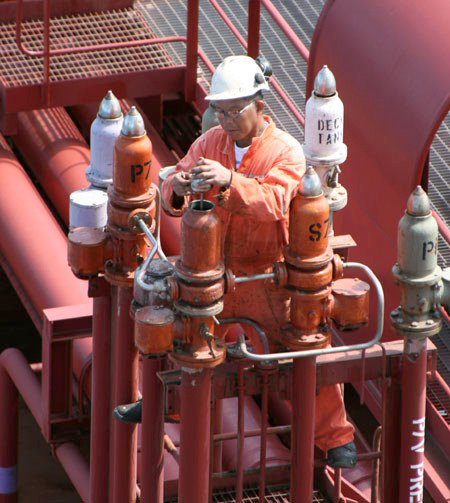
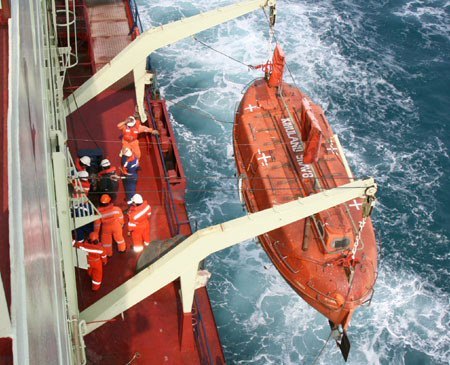

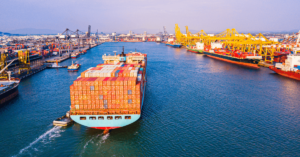
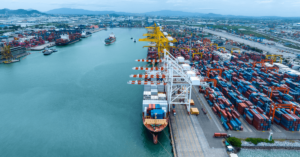
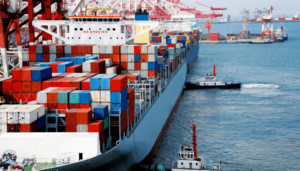
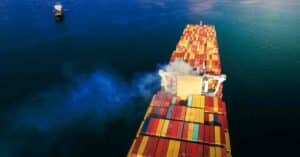


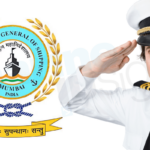

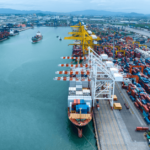
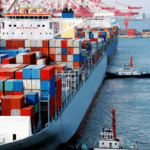


sir
i have done 3 contracts in SCI , in osvs thru RPSL agent.
routine violation of salary payment is the normal. as per the indian administration , india has not yet ratified the MLC 2006 , and so is in voluntary compliance.
question:> how does the seafarer whose salary is delayed 4/5 mnths , excercise his rights under the MLC convention , in indian flag ship , in indian waters.
the arrangement is that SCI will pass our salaries to the RPSL agent and he will pay .
the problem is that the RSPL agent keeps saying , wages not received from SCI , whereas SCI says we have always cleared by the 25th of each succeeding month.
problem is we do not know who is telling us the truth , but in 99% , of the case the suspicion is on the RPSL agents.
in this scenario how the seaman will get his salary on time from the RPSL agent.
is there a grievance cell in DG SHIPPING, where such complaints can be posted .who else can the se
afarer complain to ??
is DG action effective??
. CAN THE RPSL agents license be suspended by DG shipping on the basis of complaints ??
please advise
What information is to be provided in MLC Certificates?
The Article Re: MLC 2006 above given me a lot of useful knowledge & more encourage.
I work onboard a cruise ship as an officer. My contracts are regular 6+ months on, max 2 months off for more than 10 years. I am not paid when on leave. I am at present on a contract, paperwork signed, of 6 months, but the company have shortened my contract by 48 days to accommodate someone else’s request to join the ship early to be with her partner. I have not been asked and have not received official notification, although I am now showing the earlier date on the ship staffing system. This will create financial hardship for me. Can they do this?
What information is to be provided in MLC Certificates?
how to attain an MLC certificate for a company?
It needs to be acquired on per ship basis after the MLC inspection.
Check this link – https://m.likumi.lv/wwwraksti/2011/065/BILDES/JURNIEKI/JURNIECIBA-ENG2_PAGE_09.JPG
A seafarer suffers myocardial infarction onboard and is signed off and undergoes angioplasty. After three months of routine medication and checks, his blood, urine, ECG, Echo cardiogram and other reports are all normal. The cardiology doctors provides a medical fitness certificate to work onboard ship. As per MLC 2006, is he entitled to work on foreign going Ships? In case not what other physical examination or tests should be carried out for working on foreign going Ships.
Along with Cardiology doctor’s certificate, please approach a DG shipping approved medical facility to get tested and get a certificate from them too.
different regulation under MLC 2006 improves the working environment of seafarers
what about certified seafarers working onboard special purpose ships like medical ship,Do MLC cover them too???
Yes